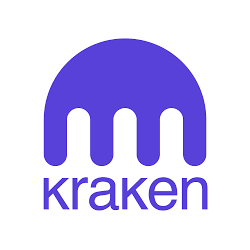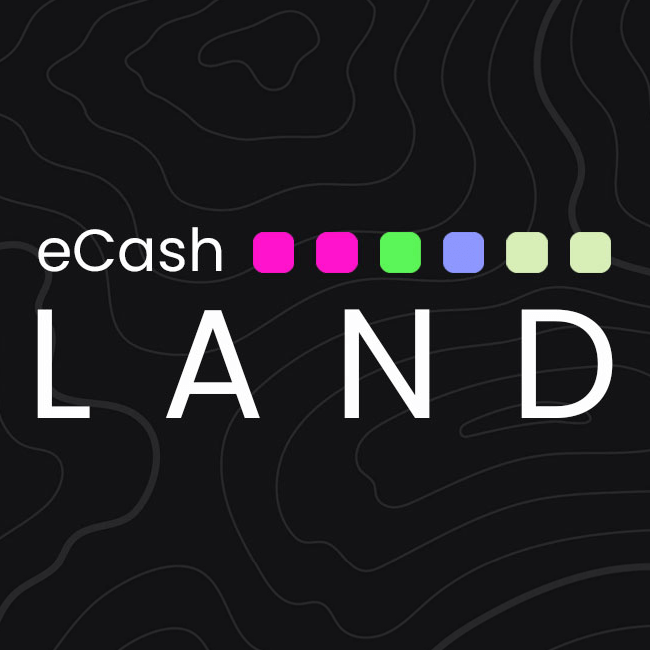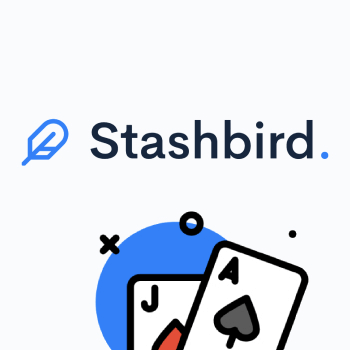Coin Dance
Bitcoin Cash Platform & Protocol Development
15 Under Discussion
1 Under Development
0 Pending Activation
48 Completed
BCHNopen_in_new |
Donations: 1.1339 BCH
|
|
BCHDopen_in_new |
Donations: 1.0166 BCH
|
|
Bitcoin Unlimitedopen_in_new |
Donations: 0.6005 BCH
|
|
Bitcoin Verdeopen_in_new |
Donations: 0.0613 BCH
|
Under Development
Bitcoin Cash Proposals Currently Under Development or Under Preliminary Discussion
CHIP 2024-12 OP_EVAL: Function Evaluation
Independent
Function Evaluation (OP_EVAL) would let Bitcoin Cash contracts be efficiently factored into reusable functions. Optimizes contract sizes for finite field arithmetic, pairing-based crypto, ZKP systems, homomorphic encryption, post-quantum crypto, and many other applications.
9 months ago
CHIP 2021-07 UTXO Fast-Sync
Bitcoin Verde
This proposal defines a method for nodes to generate, distribute, validate, and consume UTXO snapshots via the BCH P2P network.
These snapshots allow for new peers to synchronize to the current state of the network without processing the entire blockchain block-by-block.
This method of synchronizing allows new nodes to join the network within a couple of hours (or less), instead of the current average of 8+ hours.
2 years ago
Zero-Knowledge Contingent Payments
Bitcoin ABC | BCHD
Facilitate large scripts by moving them off-chain but tying them to a simple verify-only smart contract on-chain.
2 years ago
Fractional Satoshis
Bitcoin ABC
Allow for denominations smaller than 1 satoshi.
Update: Possibility added with CashTokens and BiggerIntegers.
2 years ago
CHIP 2021-05 Bounded Looping Operations
Independent
This proposal includes two new BCH virtual machine (VM) operations, OP_BEGIN and OP_UNTIL, which enable a variety of loop constructions in BCH contracts without increasing the processing or memory requirements of the VM.
2 years ago
UTXO FastSync
Bitcoin Verde
This proposal defines a method for nodes to generate, distribute, validate, and consume UTXO snapshots via the BCH P2P network.
These snapshots allow for new peers to synchronize to the current state of the network without processing the entire blockchain block-by-block.
This method of synchronizing allows new nodes to join the network within a couple of hours (or less), instead of the current average of 8+ hours.
Furthermore, this method of synchronizing (alongside block pruning methods) allows for BCH to
2 years ago
CHIP 2023-07 Composite Arithmetic Opcodes
Bitcoin Cash has upgraded to 64-bit integers and now with the advent of CashTokens the BCH VM enables complex applications, this poses the need both for higher-order math and for allowing overflows in intermediate calculations.
Now, shortly after the CashTokens upgrade there are already multiple different Constant ProductMarket Maker (CPMM) contracts live on the network which carefully have to consider strategies for multiplication overflows.
2 years ago
Reduce on-chain fingerprintability of wallets
Independent
Right now every wallet software does slightly different things with transaction preparation, which makes it possible for chain analysis to fingerprint transaction and detect which wallet is being used. It would be nice if at least we could have all P2PKH transactions look ‘the same’ so this isn’t possible.
4 years ago
Allow fee-free spending of old UTXOs
Bitcoin ABC
accessibility_new
Guarantee that old UTXOs spent without a miner fee attached will make it into a block. These are also known as "Priority Transactions".
6 years ago
Deep Link Payment Protocol
Bitcoin ABC | BCHD
accessibility_new
The Deep Link Payment Protocol is meant to be used for communication between mobile wallet app and other applications.
With this protocol, the communication wallet application and other applications will be very smooth.
6 years ago
Merklix Trees
Bitcoin ABC | Lokad SAS
7 years ago
Time Delay Penalty Based on Multiple Blocks
Prevent deep re-org attacks by penalizing alternate chaintips by a factor that is calculated by averaging the delays (in seconds) of each opposing block.
7 years ago
One Way Aggregate Signatures
Electron Cash
A non-interactive fungibility solution for transactional privacy.
7 years ago
CHIP 2024-12 P2S: Pay to Script
Independent
Pay to Script (P2S) improves wallet ecosystem safety, simplifies contract design, and reduces transaction sizes for vault, multi-party, and DeFi applications.
Reusable Payment Addresses
Bitcoin Unlimited | Bitcoin ABC | BCHD | Electron Cash
accessibility_new
This draft reusable address format, if widely adopted, seeks to provide a major improvement over existing systems in terms of net gain in all five areas, as well as more flexibility in choosing desirable compromises depending on usecases under one common format.
6 years ago
Completed
Bitcoin Cash Proposals Either Completed or Currently Pending Activation on Mainnet
CHIP 2021-05 Targeted Virtual Machine Limits
Independent
This proposal replaces several poorly-targeted virtual machine (VM) limits with alternatives which protect against the same malicious cases while significantly increasing the power of the Bitcoin Cash contract system
9 months ago
Support bigger integers
Independent | General Protocols
Support integers larger than 32 bit for the purposes of improving the capability of smart contracts.
Previous discussion on this: https://youtu.be/XmH3A7Q0BJw?t=5400
9 months ago
CHIP 2023-04 Adaptive Blocksize Limit Algo
The idea of automating adjustment of blocksize limit has been entertained for a long time. The code-fork of BCH launched by BitcoinUnlimited actually implemented the dual-median algorithm proposed by Imaginary_Username.
The basic idea is that we look at recent block history. We calculate recent usage and use it to set a new limit that is much higher. We adjust every time a new block is found. With this the blocks are unlikely to ever go full, even at load peaks.
1 year ago
Spedn
Independent
Spedn is a high level smart contracts programming language compiled to Bitcoin Script.
It is designed for explicitness and safety.
1 year ago
Improved 0-conf via security deposits
Bitcoin Unlimited
Originally an idea by Bitcoin Unlimited, Bitjson continued it and today "treeless ZCEs work today and are also a useful construction for improving finality in more complex applications (e.g. DEXs)."
Zero-Confirmation Escrows (ZCEs) are contracts which enable instant, incentive-secure payments on Bitcoin Cash. They’re particularly useful in point-of-sale, ATM, and vending applications where payers have no prior or ongoing relationship with the payee.
1 year ago
Mandatory CashAddr for P2SH
Electron Cash | Independent
Refuse sending BCH transactions to addresses starting with a 3.
Completed: https://github.com/Electron-Cash/Electron-Cash/commit/e6a195b77adbfb4419808cef607c18ae3557c710
2 years ago
Restrict Transaction Versions
Independent | Flowee
Transactions shall have as a version number of no other value than 1 or 2.
Blocks that have transactions which violate this rule shall be deemed invalid.
2 years ago
P2SH32
Independent
Pay-to-Script-Hash-32 is a long-term solution for 80-bit P2SH collision attacks. It introduces a new address type for smart contracts that is cryptographically more secure.
2 years ago
Allow transactions <100 bytes (but >64)
Independent
This rule prevents a hash griding attack, where SPV wallets can confuse a 64 byte transaction for a merkle node. The amount of entropy in each 32-byte sections of the transaction is insufficient to prevent a preimage attack. In this case, a valid transaction could be found with a hash equal to the first, or last, 32 bytes of a 64-byte transaction.
2 years ago
CashTokens
Independent
CashTokens are a Bitcoin Cash virtual machine-enforced scheme for issuing, validating, and redeeming tokens. CashTokens enable on-chain token sales, transferable synthetic assets, decentralized exchanges, and prediction markets on Bitcoin Cash.
2 years ago
Native Introspection Opcodes
Independent | BCHN | General Protocols
This proposal adds a set of new virtual machine (VM) operations which enable BCH contracts to efficiently access details about the current transaction like output values, recipients, and more – without increasing transaction validation costs.
3 years ago
Bigger Script Integers
Independent | BCHN | General Protocols
By expanding the upper bound of arithmetic inputs to 9223372036854775807, contracts can efficiently operate on values larger than the total possible satoshi value of any transaction output (approx. 2100000000000000). This enables contracts to manage balances of any size, clearing the way for large, public decentralized applications.
3 years ago
Adjust/Eliminate the 6-month Upgrade Schedule
BCHN
3 years ago
Remove Child Pays for Parent
Bitcoin Unlimited | Flowee | BCHN | General Protocols
4 years ago
Double spend proof creation and forwarding
Bitcoin Unlimited | Independent | Flowee | BCHN
Update to inform other nodes of double spend attempts immediately to improve the reliability of 0-conf transactions.
Original implementation progress: https://gitlab.com/FloweeTheHub/thehub/merge_requests/10
https://gitlab.com/snippets/1883331
4 years ago
Support for Multiple OP_RETURNs
Independent | BCHN
We propose to make presence of multiple OP_RETURN outputs qualify as standard transactions subject to the existing 223 byte limit for OP_RETURNs across all outputs of the transaction.
4 years ago
Remove the Chained Unconfirmed Tx Limit
Bitcoin Unlimited | Flowee | BCHN | General Protocols
Safely increase or remove the 50 chained transaction limit.
4 years ago
ASERT Difficulty Adjustment Algorithm
Bitcoin ABC | Independent | BCHN
5 years ago
Increase chained tx limit from 25 to 50
Bitcoin ABC
Allows faster re-spending of unconfirmed transactions.
5 years ago
CashFusion
Bitcoin ABC | BCHD | Electron Cash
Trustless, obfuscated coin consolidation. A complement to CashShuffle privacy/fungibility.
5 years ago
CashScript
Independent | Bitcoin.com
A high level language enabling basic smart contract functionality on Bitcoin Cash.
5 years ago
SigChecks Overhaul
Bitcoin ABC
Improved sigops counting.
5 years ago
OP_REVERSEBYTES
Bitcoin ABC | Independent
OP_REVERSEBYTES reverses the bytes of the top stackitem.
5 years ago
MuSig
BCHD
Added support for MuSig, a new way to handle signatures on Bitcoin.
5 years ago
Revised DAA
Bitcoin ABC
Revise Difficulty Adjustment Algorithm
5 years ago
Electrs Electrum Server Integration
Bitcoin Unlimited
Provide an alternative to the ElectrumX Electrum server by leveraging the more efficient Electrs Electrum server in Bitcoin Unlimited.
6 years ago
Enforce minimal pushdata for scriptSig
Bitcoin ABC
As per existing standardness checks, enforce that all pushed data is a minimal representation at the script layer.
6 years ago
Enable Schnorr Signatures on OP_CHECKMULTISIG
Bitcoin ABC
OP_CHECKMULTISIG and OP_CHECKMULTISIGVERIFY will be upgraded to accept Schnorr signatures in a way that is compatible with batch verification.
6 years ago
Scale to make 250MB blocks reliable
Flowee
Original Satoshi codebase had lots of design decisions that limit the block size, like saving blocks in files of max 128MB. Memory usage was also spiking on large blocks and many other things.
Successfully tested 250MB block parallel validation on testnet.
6 years ago
TxId/AddressId & spendDB Indexer
Flowee
This moves the txid indexer out of the full node which solves stability and maintenance problems. For instance you're node would go offline for some hours if you wanted to start a txid index.
Additionally add several other indexers with APIs of their own and each of which that can be enabled disabled separately.
6 years ago
CashID
Independent
CashID is an open protocol that allows secure authentication based on the public key cryptography infrastructure that is currently present in the Bitcoin Cash ecosystem. Each user can prove to a service provider that they control a specific Bitcoin Cash address by signing a challenge request, as well as provide optional metadata.
6 years ago
Cash Accounts
Independent
Cash Accounts is a naming system that can be used alongside regular bitcoin addresses and payment codes to simplify the process of sharing payment information.
6 years ago
Hash-DB
Flowee
The Hash-DB is a database written specifically for the Bitcoin Cash UTXO set.
The goal is to get a massive multi-threading UTXO database optimized based on the behavior of blockchain.
The goal of 20.000 transactions per second has been safely reached.
6 years ago
CompactBlocks
Bitcoin Unlimited
Supporting CB in BU would strengthen the connections between the BU peers and the rest of the network, without having to rely on intermediates.
6 years ago
SegWit Recovery Exception
Bitcoin ABC
With the last protocol upgrade, the enforcement of the CLEANSTACK rule made it impossible to recover funds from Segwit transactions. With the upgrade, there will be an exception to this rule to enable recovery of these funds once again.
6 years ago
Enable Schnorr signatures
Bitcoin ABC
Schnorr signatures are provably non-malleable and allow multiple parties to collaborate to produce a signature that is valid for the sum of their public keys. This is the building block for various higher-level constructions that improve efficiency and privacy.
6 years ago
Neutrino (BIP 157 & BIP 158)
BCHD
Implemented as part of the Neutrino Wallet for Bitcoin Cash, Neutrino (BIP 157 & BIP 158) allows the creation of lightweight SPV wallets with strong network level privacy.
6 years ago
Restore OP Codes
Bitcoin Unlimited | Bitcoin ABC
Re-activate the following additional opcodes: OP_MUL, OP_LSHIFT, OP_RSHIFT, and OP_INVERT.
6 years ago
CashShuffle
Electron Cash
CashShuffle is a protocol for allowing users to combine their transactions with others, creating obfuscation. It builds upon CoinShuffle and adds a matching service. As such, it is a more complete and usable protocol.
6 years ago
Simple Ledger Protocol
Electron Cash
Simple Ledger Protocol (SLP) uses the meta data in OP_RETURN for the issuance and transfer of tokens in conjunction with standard transaction outputs that each represent a number of token units specified by the sender.
6 years ago
Fast Sync via IPFS
BCHD
Support faster syncing by downloading a previous UTXO set from IPFS.
7 years ago
Graphene v1
Bitcoin Unlimited
An efficient method of announcing new blocks.
7 years ago
XVersionMessage
Bitcoin Unlimited
BCH node extended version and configuration fields for transporting a generic key-value map that is meant to hold the configuration and version parameters to communicate capabilities with other nodes (such as transmission protocols like Graphene).
7 years ago
Clean Stack
Bitcoin ABC
For a transaction to be valid, only a single non-zero item must remain on the stack upon completion of Script evaluation. If any extra data elements remain on the stack, the script evaluates to false. This is the same as BIP 62 rule #6.
7 years ago
Generalized version bits voting (BIP 135)
Bitcoin Unlimited
BIP 135 extends the semantics of the signaling bits to cover arbitrary consensus changes, referred to under the general term 'forks'. The same range of version bits is used for signaling.
7 years ago
Re-enable Satoshi Opcodes
Bitcoin ABC | nChain
Re-enable the previously disabled opcodes which were part of the original Bitcoin design. This should enable smart contract compilers, and a variety of functionality on Bitcoin Cash.
7 years ago
Increase default datacarriersize to 220 bytes
Bitcoin ABC
To disincentivize the use of other methods to embed data into the chain, in particular via P2SH, the default datacarriersize is raised from 80 byte to 220 bytes, so it becomes the "cheapest" way of embedding data into the chain.
7 years ago
Bitcoin Cash Developer Newsletter
Showcasing the latest protocol and platform developments on Bitcoin Cash
Through site feedback, content submissions, and donations, you help Coin Dance realize its vision. Your donations directly support site development, content quality control, and technical research, which is necessary for the project to achieve its goals of empowering the community and growing the ecosystem!
Supporters
The Revolution Will Not B₿e Centralized.
rocket_launch





































